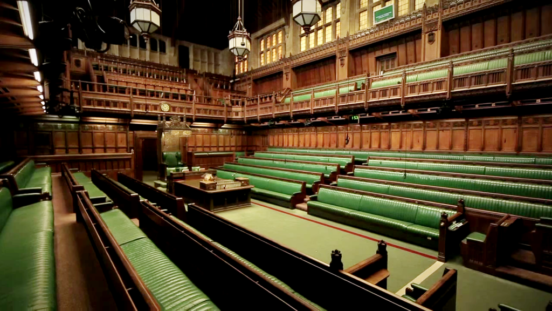The UK’s Coronavirus Act 2020 affords the UK government new powers in attempt to mitigate the effects of the COVID-19 pandemic, as with similar legislation enacted by governments around the world. But how important are sunset clauses as part of these measures? And what checks and balances are needed?
On 25 March, the UK passed the Coronavirus Act 2020 as part of its attempt to manage the coronavirus outbreak. The Act introduces a wave of temporary measures designed to either amend existing legislative provisions or introduce new statutory powers in order to mitigate the effects of COVID-19 (see Nicholas Clapham’s Conversation post here on the content of the Bill). As countries around the world enact similar laws, there are notable concerns regarding not only the impact of emergency provisions on human rights, but also the potential of emergency powers to become normalised. One response is to utilise sunset clauses. This piece argues that while sunset clauses are both welcome and necessary, they should nevertheless be approached with a degree of caution.
Legislation in Times of Emergency
Following agreement by both Houses of Parliament, the Coronavirus Bill received Royal Assent on 25 March transposing the Bill into primary legislation in the form of The Coronavirus Act 2020 (c. 7). The Coronavirus Bill Explanatory Notes capture the Act’s existence as emergency legislation that ‘enables the Government to respond to an emergency situation and manage the effects of a COVID-19 pandemic.’ Amongst other things, the Act attempts to increase the available health and social care workforce, ease the burden on frontline staff, and contain and slow the virus. Conversely, the Act also grants police, immigration officers and public health officials new powers to detain “potentially infectious persons” and put them in isolation facilities. It will also enable the government to prohibit and restrict gatherings and public events for the purpose of curbing the spread of COVID-19.
Similar pieces of legislation have been passed across the globe, sometimes following a declared state of emergency and other times existing as emergency provisions (see Asanga Welikala on differences between states of emergence and emergency legislation). In Scotland, for instance, the Coronavirus (Scotland) Act 2020 passed through the full legislative process at Holyrood in a single day. In Ireland, The Health (Preservation and Protection and other Emergency Measures in the Public Interest) Act 2020 was passed by both houses of the Oireachtas (the Irish Parliament) and was signed into law by the President on 20 March 2020. On Sunday 22 March, France’s two-chamber parliament adopted a bill declaring a health emergency in the country to counter the spread of the coronavirus, a move that gives the government greater powers to fight the spread of the disease.
Through emergency legislation, special and extraordinary measures are enacted to respond to certain crises, in derogation of existing standards and rules. The adoption of emergency provisions invokes differences of opinion regarding their appropriateness and necessity. On the one hand, emergency legislation is thought to enable the state to respond effectively to crises while keeping the exercise of emergency powers within the rule of law. It reflects that, in extraordinary times, Parliament must make some allowance for the passing of laws quickly and effectively should circumstances demand it. On the other hand, emergency provisions, in granting powers to the state that circumvent ‘normal’ legislation, can have adverse effects on the enjoyment of rights to life, a fair trial, liberty and security, and freedom of assembly and association, as examples (see Amnesty International; Joint Committee on Human Rights; Greene). Times of emergency can, therefore, produce what Oren Gross terms a tension of ‘tragic dimensions’ between democratic values and responses to emergencies.
Where one sits on the potential trade-off between government intervention and individual rights and freedoms during times of emergency is a matter of personal opinion (see different contributions from Koldo Casla and Kanstantsin Dzehtsiarous). It is, however, the longer-term implications and impacts of law adopted in response to emergences that raises additional and arguably greater concerns. There is always the risk that exceptional or emergency powers, granted for temporary purposes, can become ‘normalised’ over time. Alan Greene has noted, for instance:
History shows us that emergency powers often outlive the phenomenon that triggers the introduction of emergency powers in the first instance. While the need for exceptional powers may be obvious at the outset of the emergency, assessment of the point where these powers are no longer needed is considerably more problematic.
Elliot Bulmer also identifies that many governments have used emergency powers inappropriately — needlessly prolonging or renewing states of emergency and using emergency powers not to restore democratic normality but to bypass normal channels of democratic accountability. When examining emergency legislation, therefore, one is required to contextualise any assessment in light of the broader realities and tensions faced, accepting as part of this analysis the need for flexibility on the part of the state to respond to the unfolding events. At the same time, it is also necessary and expedient to consider the potential ramifications of any necessary restrictions on the enjoyment of rights at a later stage. Sunset clauses, in theory, exist to bridge this chasm between immediate requirements and future fall outs, ameliorating, in turn, the tension of ‘tragic dimensions’ between democratic values and responses to emergencies.
The Use of Sunset Clauses in Emergency Legislation
Sunset clauses or provisions are dispositions that determine the expiry of a law or regulation within a predetermined period. Through their use, an act or provision automatically ceases in its effect after a certain time. For instance, in the UK, The Terrorist Asset-Freezing (Temporary Provisions) Act 2010 stipulates that its provisions have effect for the period beginning when this Act comes into force and ending with 31 December 2010. Sunset clauses can also make provision for future debate in order to limit the potentially deleterious and undemocratic nature of legislation that is ‘fast-tracked’. Thus, sunset clauses can require either that parliament renew a piece of legislation or replace it with a further piece of legislation subject to the normal legislative process. Indeterminate provisions such as these blur the lines between sunset clauses and post-legislative scrutiny.
Various emergency provisions adopted in response to Covid-19 have included variations or combinations of sunset clauses. In the UK, for instance, section 89of the Coronavirus Act provides that the majority of the provisions will expire after two years. However, this period may be extended by six months or shortened in accordance with section 90. The Government also accepted an amendment, which introduced the requirement that the operation of the Act must be reviewed by Parliament every six months (see section 98). In Ireland, the powers under The Health (Preservation and Protection and other Emergency Measures in the Public Interest) Act 2020 will cease to have effect after the 9th day of November 2020, unless a resolution is passed by both houses of the Oireachtas (parliament) to approve the continuation of the measures. In Scotland, the Coronavirus (Scotland) Act includes a “sunset clause”, according to which most of it will automatically expire six months after it comes into force. MSPs will be able to vote to extend this for another six months if necessary, and then for another six months after that, but this is the absolute limit – so the measures in the Act have a maximum duration of 18 months. In France, the emergency lasts for two months from the day of its adoption, although it can be extended by lawmakers.
Sunset clauses when included in emergency legislation can be seen as a mechanism by which democracies devise ways to accommodate governmental powers within a pre-established legal framework, rather than leave it to governments to use raw power and untrammelled discretion to deal with emergencies in an unregulated way.
The Limitations of Sunset Clauses
Nevertheless, while history teaches us to approach emergency laws with a degree of scepticism, it is equally necessary to adopt a cautious approach to sunset clauses. The addition of sunset clauses notwithstanding, pieces of emergency legislation can remain in force long after the proposed sunset. In the US, for instance, the 2001 Patriot Act adopted in the aftermath of the September 11th attacks, included sixteen sections originally meant to sunset on December 31, 2005. The Act was, however, reauthorised several times in the following years following very limited evaluation. When sunset clauses provide for further debate, the efficacy of the review process is of central importance. However, the mere provision of future scrutiny is no guarantee for the effectiveness of that process. For instance, the Counter-Terrorism Review Project highlights that in the 2003 debate in the House of Lords on whether to renew the Part 4 powers of the Anti-Terrorism, Crime and Security Act 2001 – the controversial measures which allowed for the indefinite detention of non-national terrorist suspects – just four Lords spoke. This included the Minister who had introduced the renewal order. Only 13 MPs attended the first debate in 2006 on whether to renew the Prevention of Terrorism Act 2005 – the legislation which established the control order regime. In addition, the time allotted for debates on sunset clauses is also very short, often limited by parliamentary procedure to only an hour and a half. This has not always been a problem for Parliament. The House of Commons Third Delegated Legislation Committee, which was entrusted to consider whether the Terrorism Prevention and Investigation Measures Act 2011 should be renewed for a further five years, debated the measures for just 32 minutes (see here for discussion). In addition, there are questions regarding the most effective form of review. If parliamentary post-legislative review is the chosen approach, there may be problems associated with politicisation of the legislation in question. Should, then, the review be undertaken by an independent expert, Committees of the House of Commons or Lords, or independent group? If so, how democratic is this process?
Similarly, there are questions around the necessary period of time between adoption and review and between different review processes. Although the UK’s Coronavirus Act allows for review after a period of 6 months, this may still be too infrequent. During the House of Lords review of Fast Track Legislation in 2009, for instance, The Better Government Initiative argued that “post-legislative scrutiny is all the more necessary” in cases of fast-track legislation, and that “it should perhaps be more frequent.” Such is the nature of the pandemic and such is the extent and wide-ranging nature of powers afforded under the Coronavirus Act (and similar pieces of legislation adopted globally), that more review processes might be required. But how might this be achieved in light of social distancing? Of course, many of these are issues that arise in the context of any review process, but they nevertheless demonstrate that there are a range of considerations to flow from sunset clauses, which require ongoing scrutiny themselves. In short, sunset clauses, in whatever form, are important but should also be approached with a degree of caution.
Conclusion
Sunset clauses will continue to be included in emergency legislation adopted in response to the COVID-19 pandemic. They are unquestionably a useful mechanism by which to ensure that emergency provisions do not normalise, thereby entrenching powers that can adversely affect the enjoyment of individual rights and freedoms. At times, they merge with post-legislative scrutiny, conditioning the continuation of legislation on the basis of ongoing and periodic review processes. They can, as noted, ease the tension of ‘tragic dimensions’ between democratic values and responses to emergencies. However, there are limitations associated with sunset clauses. They can exist on paper but have little impact in practice. They can be renewed on an ongoing basis, often with little or insufficient scrutiny. Thus, adherence to sunset clauses must itself be scrutinised. On the whole, emergency legislation adopted in response to COVID-19, will require, as Stephen Tierney and Jeff King note, not only sunset clauses, but also ‘robust parliamentary scrutiny of the powers, and adequate provision for administrative and judicial oversight are imperative for the granting of such significant powers to ministers.’ To this one might also add the important role that the media, civil society, international community and human rights monitoring mechanisms will play in assessing the use of powers granted under emergency legislation.
This article was originally published by the UK Constitutional Law Association and the PSRP Blog
Dr Sean Molloy is a PSRP associate and researcher at Newcastle University Law School. PSRP is a consortium in partnership with the Univeristy of Edinburgh’s Law School.










Comments by